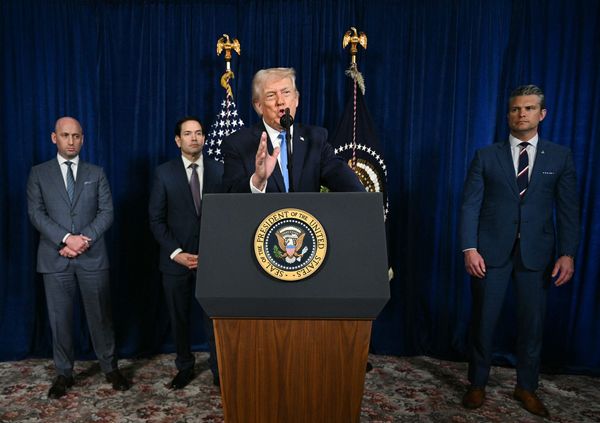
Ahead of the most consequential European elections of recent times, the signs of a significant rightward shift are unmistakable. In France, Marine Le Pen’s Rassemblement National is now polling more than double its nearest rivals and looks set to record a disturbingly decisive victory. In Germany, the far-right AfD is out-polling all three parties in the governing coalition, despite being embroiled in a series of high-profile scandals.
Whether such parties will be capable of forming a cohesive force after the election is another matter. As a Guardian investigation into their funding reveals on Thursday, the financial backing is there. But the pan-European radical right is split into fractious and rivalrous blocs, and internally divided over issues such as the war in Ukraine. The AfD has just been expelled from the Identity and Democracy group, after its former lead candidate, Maximilian Krah, sought to exculpate the actions of some members of the Nazi SS. Nevertheless, the rise of nationalist, populist and Eurosceptic parties across the continent has become a defining phenomenon of the times.
Against this sobering backdrop, Emmanuel Macron’s state visit to Germany this week – the first by a French president for 24 years – was more than a merely ceremonial affair. Speaking in the AfD heartland of Dresden, Mr Macron made a passionate and urgent case for more, not less, Europe in order to see off illiberal extremism. Specifically, he called for a doubling of EU spending on challenges ranging from the green transition to boosting defence. This “massive investment shock”, Mr Macron suggested, could be financed by the kind of joint borrowing instruments that were successfully rolled out during the pandemic.
Other growth-friendly measures discussed with the German chancellor, Olaf Scholz, included a union of capital markets, and a rethink of state aid rules to allow industry to compete with Chinese and American rivals. The latter might worry smaller EU member states fearful of being left on the margins. But the overall thrust of Mr Macron’s argument, which echoes his previous calls to build a more “sovereign” Europe, is correct. Years of economic stagnation have left liberal democracies vulnerable to Eurosceptic movements that are gaining traction by playing on insecurities, targeting migrants and citing the costs of the green deal. A progressive step-change that enables EU institutions to pump prime key sectors, protect industries and ease economic anxieties is the right strategic response.
It is, though, a vision that is at odds with traditional German views on, for example, the desirability of shared European debt. In advance of his visit, Mr Macron said he would try to convince Mr Scholz of the need for a “new economic paradigm”. A joint article published this week, which called for new forms of so-called “own resources” spending for the EU, suggests tentative progress on that front.
At the height of the Covid pandemic, Mr Scholz hailed the creation of an emergency EU recovery fund as a “Hamiltonian moment”. This was a reference to the federal takeover of state debt following the American Revolution, engineered by Alexander Hamilton, the first US Treasury secretary. Hamilton’s gambit was a political one. Via economic means, he aimed to bind together the constituent parts of the new American nation.
In the face of a nationalist threat that seeks to unravel layers of European integration and cooperation, Mr Macron is pursuing a similar long-term vision. Formidable headwinds in France, Germany and elsewhere mean the chances of shifting the dial before next week’s elections seem slim. But by highlighting the need for a fiscal reset, in the interests of growth, unity and solidarity, the French president has done the EU a service.







